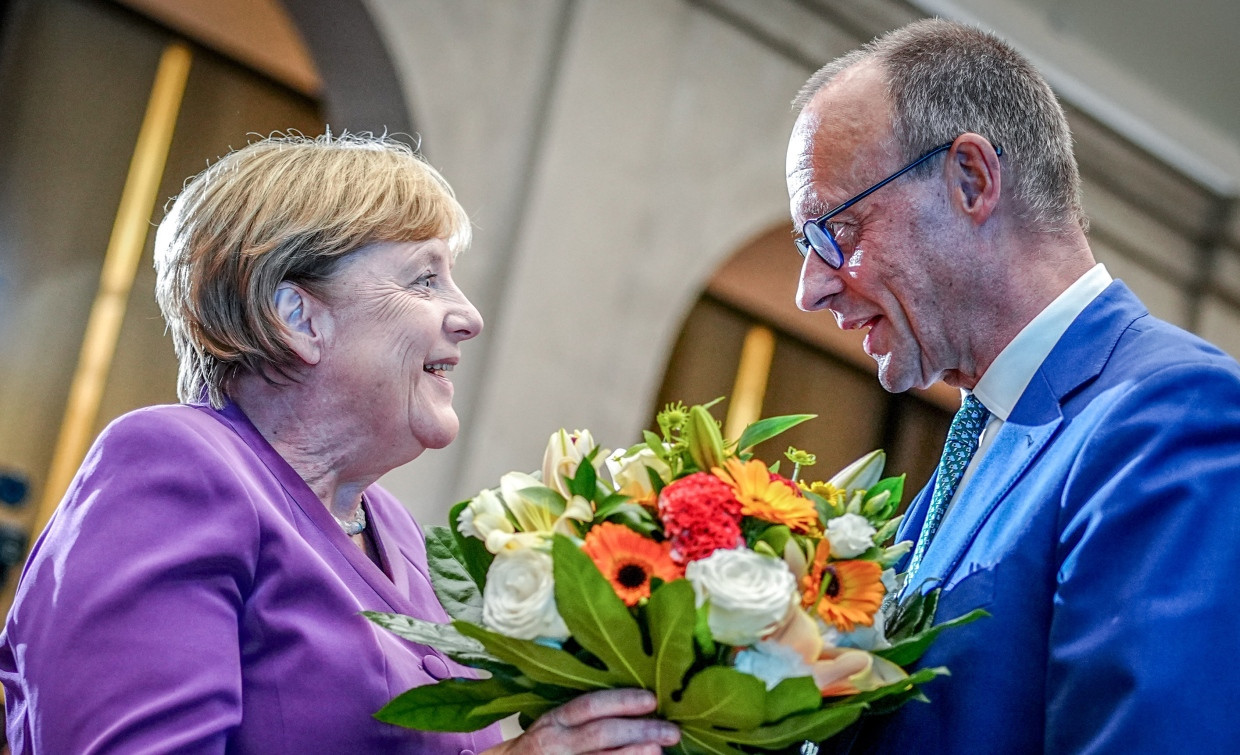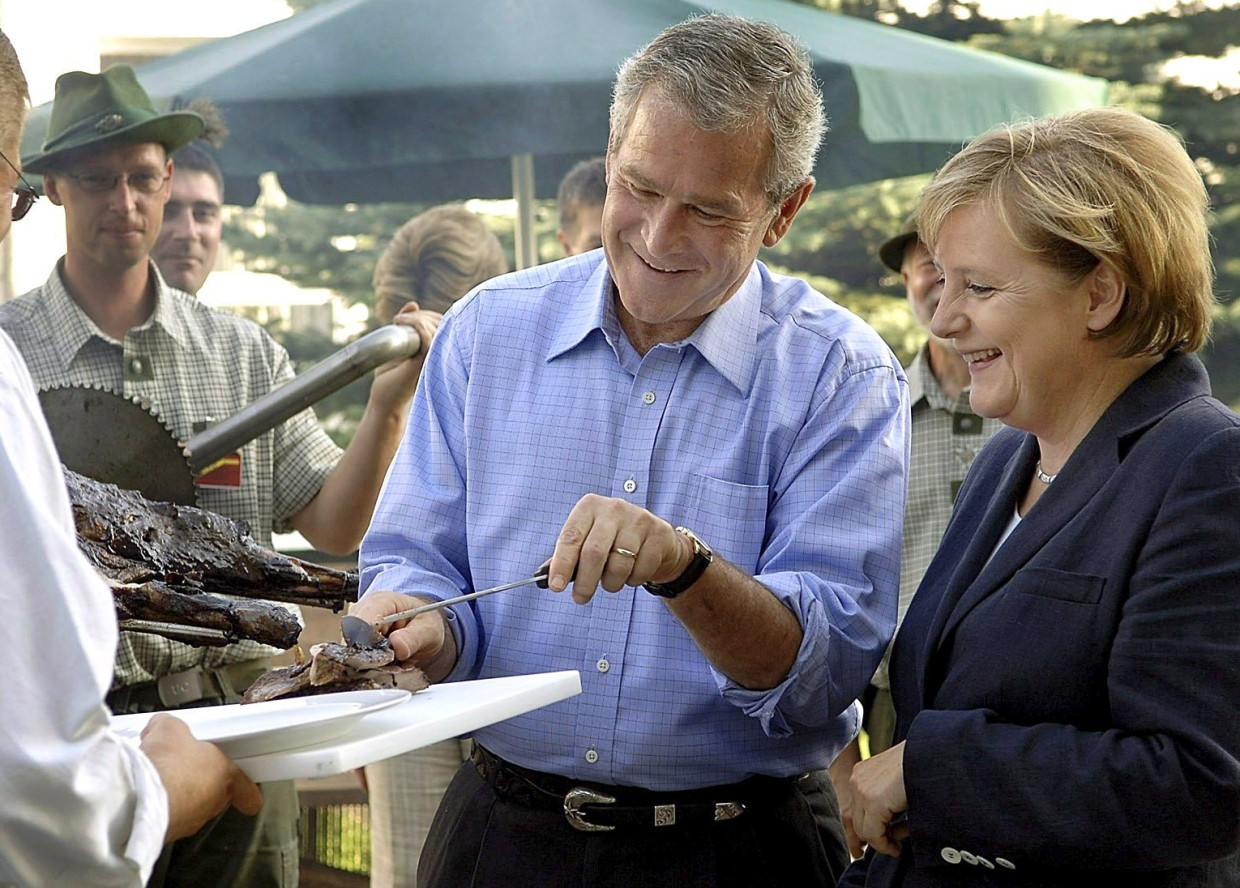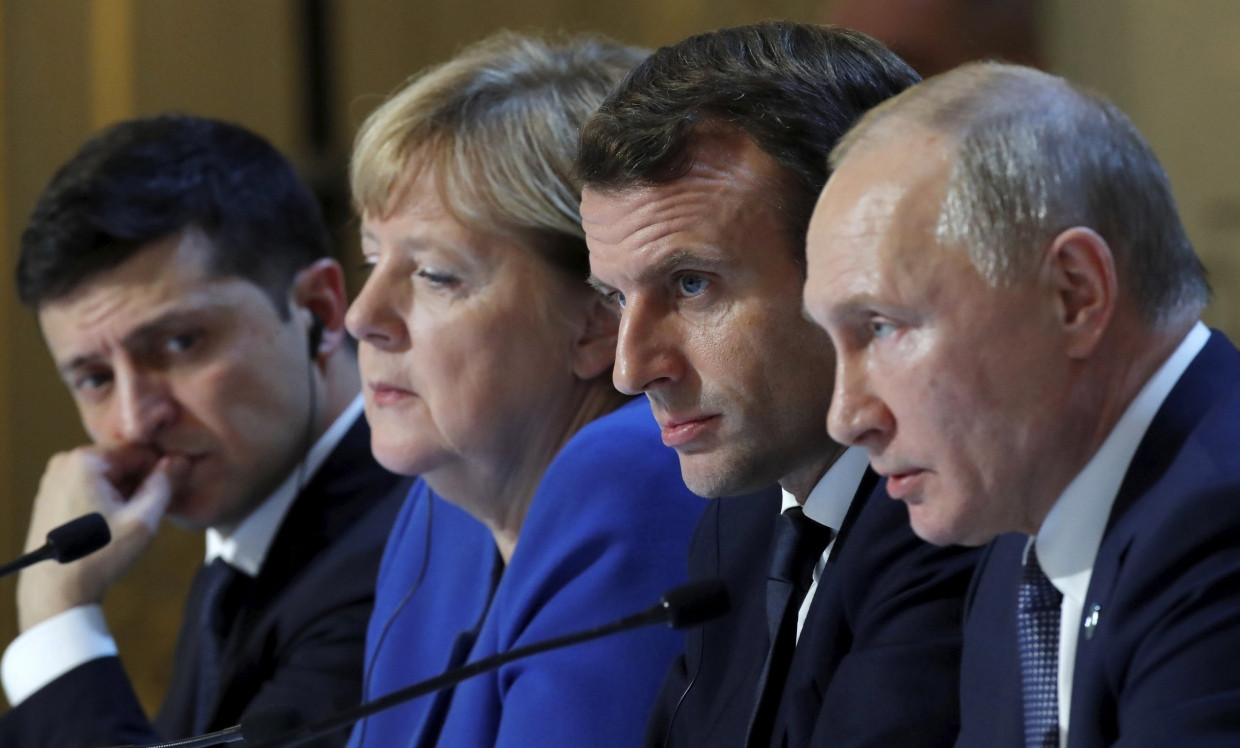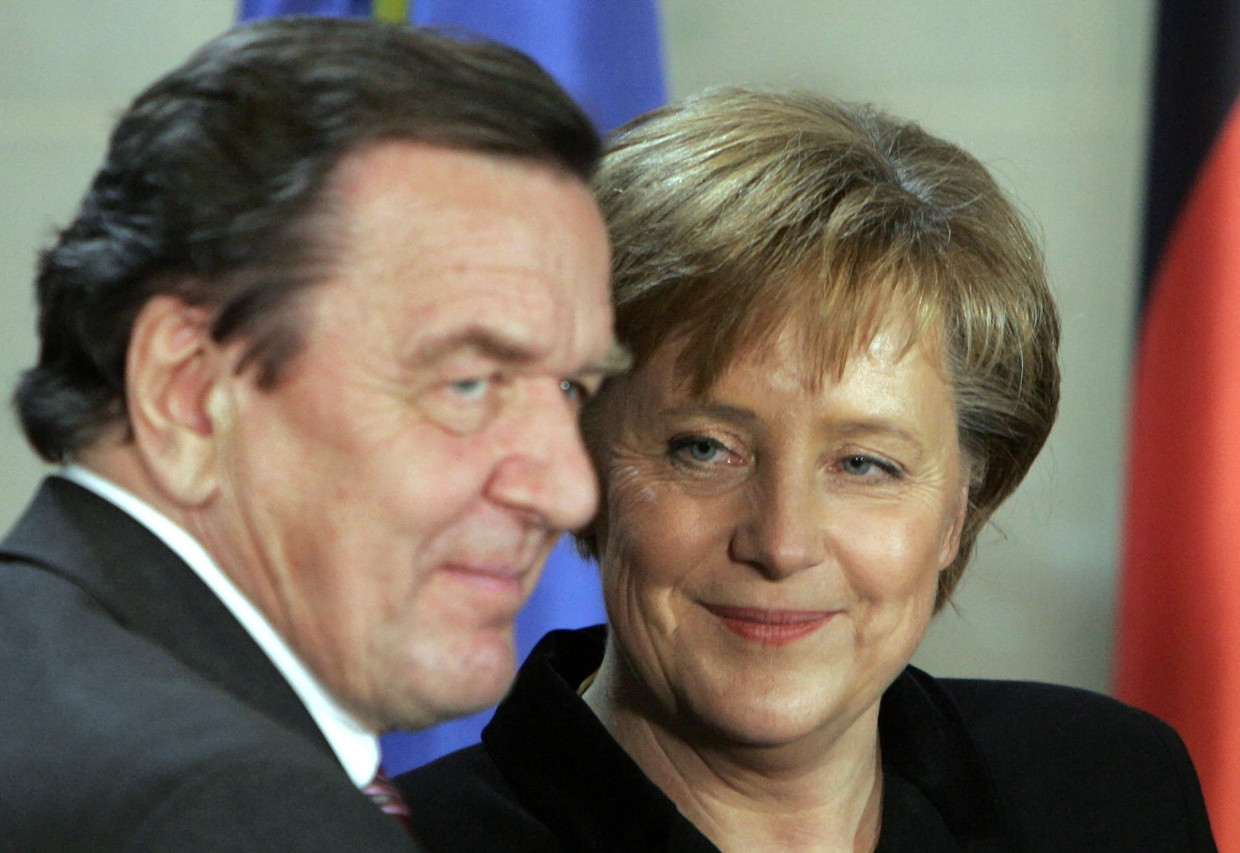„Politische Sachfragen sind fast immer auch Machtfragen“, ist einer der Schlüsselsätze in der Autobiografie, die Angela Merkel zusammen mit Beate Baumann verfasst hat – ihrer engsten Beraterin und Vertrauten über Jahrzehnte hinweg. „Wer es schafft, Begriffe zu prägen, ist erfolgreich, inhaltlich wie machtpolitisch.“ Der Zusammenhang dieser Passage gilt nicht etwa der Auseinandersetzung mit dem politischen Gegner – einer der konkurrierenden Parteien also. Gemeint ist eine CDU-Kommission, die unter der Überschrift „Neue Soziale Marktwirtschaft“ die Prinzipien der sozialen Marktwirtschaft auf den Prüfstand stellen und erneuern sollte.
Merkel war soeben CDU-Parteivorsitzende geworden. Gegen männliche Konkurrenten, deren Hahnenkämpfe in Gremien Merkel sorgsam beobachtete und auch witzig imitieren konnte, hatte sie sich zu behaupten. Bei denen aber, so nahm es Merkel (und gewiss auch Baumann) wahr, schrillten die Alarmglocken, als sie persönlich auch den Vorsitz der Arbeitsgruppe übernahm. Die einen sorgten sich, Merkel wolle mit Traditionen der Marktwirtschaft brechen. „Die anderen wollten mir – eher schnöde – den Erfolg nicht gönnen. Und nochmals: „Wie gesagt, Sachfragen sind fast immer auch Machtfragen, und wer Begriffe prägen kann, ist erfolgreich.“
Merkel: Putin hätte eine NATO-Anbindung der Ukraine nicht beeindruckt
Recht haben, ist in der Politik das eine. Recht bekommen, ist der eigentliche Schlüssel zum Erfolg. Merkel beschreibt die Machtkämpfe, die dazu gehören: Strategien, taktische Manöver, überraschende Volten, Personalpolitik, Bündnisse.
Episodenhaft und chronologisch wird das Leben erzählt, gegliedert in fünf Teile: Ihre Vergangenheit in der DDR („Ich wurde nicht als Kanzlerin geboren“), die Wendezeit („Ein demokratischer Aufbruch“), die Jahre in Bonn und der Aufstieg in der CDU („Freiheit und Verantwortung“), die ersten zehn Jahre als Kanzlerin mit Finanz- und Euro-Krisen sowie der ersten Überfälle von Putins Russland auf die Ukraine („Deutschland dienen I“), die Zeit von 2015 an, die sie mit der Flüchtlingskrise beginnen lässt („Deutschland dienen II“) und deren Auseinandersetzungen in Gesellschaft und Partei – wie sie schreibt – der eigentliche Anlass zum Verfassen ihrer Autobiografie waren.
Merkels und gewiss auch Baumanns Reflexionen münden nicht in Selbstkritik, welche ohnehin dem damals im Kanzleramt erdachten Wording widersprochen hätte, anders als ihr Vorgänger Schröder denke Merkel stets vom Ende her.

The descriptions reflect what was being reported from government headquarters at the time in question. Russian gas is cheap, delivered reliably and is in the interests of the German economy. Conscription is full of injustices and expensive; Their suspension was celebrated at party conferences of the CDU and CSU. Putin's policies are aggressive, but must be taken into account. He wasn't even impressed by Ukraine's connection to NATO, which Merkel rejected.
The acceptance of refugees corresponds to European values. The exit from nuclear energy was inevitable after the Fukushima disaster and met the expectations of the parties at the time. Politics must be based on circumstances and majorities, is the book's dictum. Referring to the failures of international climate protection policy, Merkel quotes herself: “We knew almost everything. The question is whether you can react to everything with the same force at any time.” And: “For me, radicalism was not the best way to political success.”
From Merkel's perspective, the history of her years as chancellor does not need to be rewritten. She does not make a life confession. At best, venial sins are admitted. Occasionally poorly prepared interviews, for example. Or the smoking thing. At the very beginning of her work as women's and youth minister, she organized a journalist's trip to Cottbus.
The FAZ article written by the author of these lines was headlined “The youngest in Kohl’s cabinet still smokes in public.” Merkel has not forgotten it. Firstly, because it was the first portrait-like text about her in a national newspaper and secondly because her partner at the time and later husband, Joachim Sauer, accused her of always telling her that she should stop smoking, especially in public. Merkel writes that she stuck to it.
“It was a complete disaster”
The way up was rocky. Helmut Kohl gave her the Ministry for Women and Youth after the 1990 federal election. Four years later she became Environment Minister, partly because her predecessor Klaus Töpfer was critical of the use of nuclear energy. When Gerhard Schröder, Prime Minister of Lower Saxony at the time, told her that he had gotten along better with Töpfer, she retorted to the power-conscious Social Democrat: “But now you have to deal with me.”
Merkel's consciousness of power became clear in the fact, which was remarkably not mentioned in the book, that she sent Töpfer's confidant and State Secretary Clemens Stroetmann, the actual head of the Environment Ministry, into retirement. Merkel had sent a signal. Personnel issues are also questions of power. After Kohl's defeat in 1998, which Merkel had seen coming, Wolfgang Schäuble became party chairman and she became CDU general secretary.

The donation scandal involving honorary chairman Kohl and other CDU politicians caught the party and Merkel off guard in 1999. Kohl's refusal not to name the donors because of a promise led to tensions. Merkel writes: “It was a complete catastrophe. I could hardly stand it. And I also felt abandoned by Wolfgang Schäuble.” Together with Baumann, her press spokeswoman Eva Christiansen and the CDU federal manager Willi Hausmann – a former employee of Schäuble – she consulted.
Christiansen suggested writing an article for the Frankfurter Allgemeine Zeitung in the “Foreign Springs” section. Schäuble was not inaugurated because he would have stopped the project. Merkel wrote. Baumann edited. Christiansen offered the text to the FAZ. It did not appear as a “foreign pen” but in the news section. “Merkel: Kohl’s time is irretrievably over.” The events that Kohl admitted had caused damage to the party. “So the party has to learn to walk.” And: “It has to break away from home like someone going through puberty.”
Merz, Wulff and Biedenkopf supported Merkel
At the subsequent meeting of the party leadership, which was surprised by the article, she was supported by deputy parliamentary group leader Friedrich Merz and the Prime Ministers Christian Wulff and Kurt Biedenkopf. Others were horrified – including Norbert Blüm, Kohl's former labor minister, and Roland Koch, head of government in Hesse. The consequences are described in detail and clearly. Schäuble resigned from his positions as party and parliamentary group leader due to his own fundraising failures.
Merz became parliamentary group leader. “I thought. In terms of power politics, I was convinced that I would not have the opportunity to become chairman of the second major people's party in Germany, alongside the Social Democratic Party of Germany.” And she was aware that she would then have to be ready to be “Chancellor or to become Chancellor of the Federal Republic of Germany.” Merkel was elected party leader. “A wonderful moment,” she writes. But she told her celebrating friends: “That was the last beautiful day for a long time.”
For another twenty years? The renunciation of the candidacy for chancellor in 2002, forced by party friends, is described – right up to the breakfast in Wolfratshausen with Edmund Stoiber, which of course laid the foundation for Merkel's further acquisition of power. She took the parliamentary group chairmanship away from Friedrich Merz and became Chancellor three years later.

The loneliness of power is registered. Not all of Merkel's concessions find their way into the book. The former “young savages” in the CDU, who considered the restrictive foreign policy of Kohl and his Interior Minister Manfred Kanther to be no longer up to date, only promised Merkel a long-term alliance if she supported their reform ideas. Peter Altmaier, Ronald Pofalla and Norbert Röttgen were among them – and then became important helpers in the party, parliamentary group and federal government.
Apart from de Maizière and Baumann, no friends or confidants
However, it is not clear that Merkel had personal friends and confidants in the CDU, apart from Baumann and Thomas de Maizière, of course, with whom she had contact during the years of reunification. She did not have the networks like those of her party friends who had met in the Junge Union. Did she regret it? Had she tried?

It doesn't come from her memories. It's about duty, responsibility, work and deadlines – all coupled with caution. Don't let your cards be looked at. Silence is also part of power politics, and all those who had close contact with it were subject to an (unspoken) rule of silence, which can only be seen indirectly in the book. How the CDU was led from the Chancellery? Who was there at the so-called morning situation in the Chancellery, where the most important domestic political matters were regulated? Who should be promoted and who should be punished?
Some of her aides, such as parliamentary group leader Volker Kauder and the changing heads of the Chancellery, were able to say that differences were also discussed openly in talks with Merkel. But even afterwards, when writing the work, Merkel adhered to her own rules of confidentiality and secrecy. There are also nice trivialities: lentil soup in the Chancellery. Attending football games.
Even Merz comes off reasonably well
Of course, there were speculative fears, especially within her own party, that Merkel would, now that everything is over, make political and personal calculations in order to increase circulation. Especially since Merkel has not been seen at party conferences or elsewhere in the party since leaving office. The companions don't have to worry. Only the dispute with CSU chairman Horst Seehofer regarding migration policy is described in detail to his detriment. Merkel had broken with him. Seehofer won't be upset about it.
Even Friedrich Merz comes off reasonably well. She appreciated his ambition. The dismissal of Norbert Röttgen from the office of Environment Minister, forced by Merkel, plays no role in the memories. Merkel also silently avoided the resignations of Defense Minister Karl-Theodor zu Guttenberg (because of his plagiarized doctoral thesis) and of the Federal Presidents Christian Wulff, who had acted unhappily, and Horst Köhler, who felt abandoned by Merkel.
Other companions of the Chancellor will look in vain in the book's name register. Philipp Rösler, FDP chairman and temporary vice-chancellor, is not mentioned, nor is Ralph Brinkhaus, who replaced long-standing faction leader Kauder against her wishes at the end of Merkel's chancellorship.
Is there anything else missing? Franz Müntefering's condition, communicated to Merkel in 2005, is one of them: there will only be a grand coalition if she abandons her “neoliberal” ideas and party decisions. Merkel agreed without any hassle. Or the announcement by Klaus Student, her long-time federal managing director and highly successful campaign organizer, when Merkel was not yet sure in 2016 whether she would be available as a candidate for chancellor again in 2017: “Dr. Merkel, I will only organize the CDU election campaign if you run again. Otherwise not.” Merkel's and Baumann's memories leave room for a comprehensive biography of the Chancellor.
Angela Merkel/Beate Baumann: Freiheit. Erinnerungen 1954 – 2021.
Kiepenheuer & Witsch Verlag, Köln 2024. 736 S., 42,– €.









